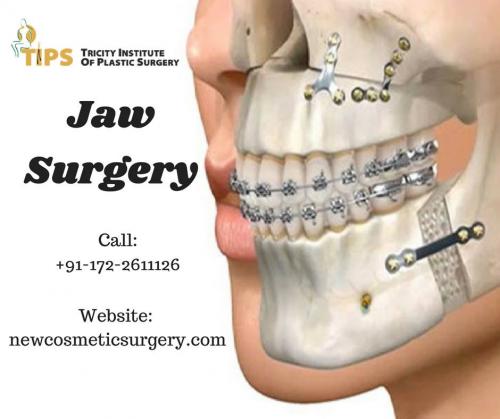Tips For Easy Recovery After A Jaw Surgery

Orthognathic surgery is a corrective jaw surgery that straightens or realigns your jaw and corrects related skeletal deformities that a patient may need. Jaw surgery is carried because of birth defects, involuntary mouth breathing, trauma or injury to the jaw or face, protruding jaw, chronic jaw or jaw joint (TMJ) pain, an inability of your lips to come together without straining or for tumour or pathology affecting the jaw.
Now, when you hear the words "Jaw surgery," you may think of a hospital setting, general anaesthesia, and one or more days in recovery from this type of dental procedure. But, here we have some easy tips that will help in easy recovery after surgery:
First of all, never ignore your surgical area, so prefer using less talking, eating and more drinking water. This is recommended only for a few hours to avoid further swelling.
For the speedy recovery, it is more advisable to take proper rest. Physical activities are restricted, just keep your head propped up with a pillow to minimize swelling and bleeding.
During your timing of recovery never try any hard material. Use as much as liquid diets like fruit milkshakes, soups, smoothies, yoghurts, and mashed potatoes etc.
Drinking plenty of water helps you in easy and early recovery.
Using alcohol or Tobacco products many invites several other illnesses, that may be irrecoverable. So, avoid these products during the course of your recovery
Regular cold compress gives you a great relief and faster your Jaw Surgery Recovery speed. So, do it minimum 5-6 times a day.
Never ignore a single dose of your antibiotic. Some leave the treatment in between it may cause your problem in the future.
Keep your mouth clean. After 24 hours have passed, rinse gently with warm salt water (one teaspoon of salt in a glass of warm water) four times a day. Be sure to rinse after every meal and snack, making sure that the water removes any bits of food around the surgical area. Your dentist may also recommend a chlorhexidine rinse to kill bacteria.
Don’t brush or floss the teeth in the surgical area until fully healed, but continue to brush and floss the rest of your mouth.
Eat foods rich in vitamin A and C. These vitamins support the healing process. Load up on foods like eggs, fish, sweet potatoes and stewed carrots.
Final Words
Follow your dentist’s aftercare instructions properly to heal quickly without any complication. However, you should contact your dentist immediately if you experience any of the following in Orthographic surgery:
Bleeding that continues even when you apply pressure,
Pus, which can indicate an infection,
Trouble swallowing or breathing,
A fever that lasts for more than 24 hours after surgery and
Throbbing pain that doesn’t respond to medication.
Post Your Ad Here
Comments